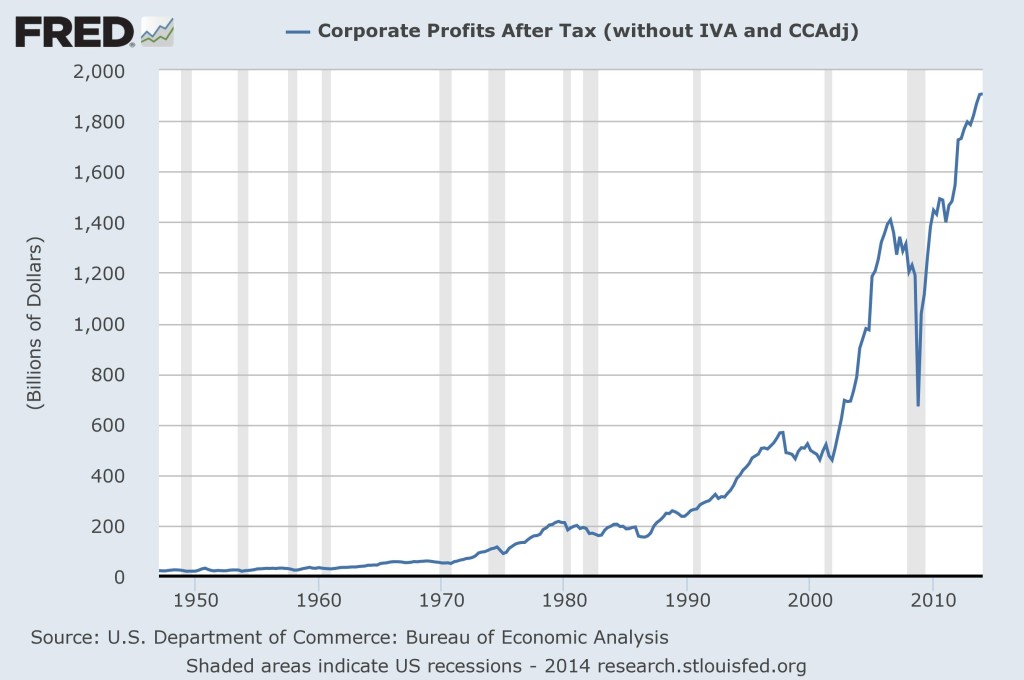“Masquerading as a man with a reason
My charade is the event of the season
And if I claim to be a wise man
Well, it surely means that I don’t know” – Kansas, 1976
The state, not the group. In 2010, Republican and former US Senator, Sam Brownback was elected governor on promise of restoring the state’s economy. In 2012, he signed a massive tax cut into law, arguing that it would be a big boost the economy. Eventually, he hoped to eliminate individual income taxes entirely:
I think we can, I really do…The experiences in some other states have been that when you cut income taxes, your sales tax increase more than makes up for your income tax cut
Supply-side economics was the basis of his optimism. Tax cut proponents like economist Arthur Laffer insist that if you cut taxes deeply enough, the resultant boom in economic activity will boost revenues. It’s magic, painless. It’s what every politician wants. And Sam Brownback and the Kansas legislature went all-in: In 2012, the Kansas legislature:
• Cut individual tax rates by 25%
• Repealed the tax on sole proprietorships and other “pass-through” businesses
• Increased the standard deduction
In 2013, the legislature cut taxes again, passing a measure to gradually lower rates even more over five years. By 2018, the top rate, which was 6.45% in 2012, will fall to 3.9%. The Center on Budget & Policy Priorities (CBPP) has a nice summary of the tax changes.
So what happened after all those tax cuts? Revenues collapsed. Kansas reported that it took in $338 million less than expected in the 2014 fiscal year and would have to dip heavily into its reserve fund. From June, 2013 to June, 2014, all Kansas tax revenue plunged by 11%. Individual income taxes fell from $2.9 billion to $2.2 billion and all income tax collections plummeted from $3.3 billion to $2.6 billion, a drop of more than 20%. Keep in mind that these are actual year-over-year declines in revenues, not projected shortfalls in revenue. They come at a time when the national economy is recovering, and most other states are enjoying increases in tax collections. The cuts, largely benefiting the wealthy, cost the state 8% of the revenue it needs for schools and other government services. As the CBPP noted, that’s about the same economic effect as a midsize recession.
Yet, there were excuses from Brownback in the past few weeks:
It’s the price of creating jobs
Since the first round of tax cuts, Kansas job growth has lagged the US economy. So has Kansas personal income. While more small businesses were formed, many of them were individuals taking advantage of the newly tax-free status by redefining themselves as businesses, now allowed under the Kansas tax code. Kansas’ non-partisan Legislative Research Department estimates Brownback’s tax cuts will cost the state $5 billion in lost revenue by 2019. To put that in perspective, Kansas currently has an $8 billion annual budget.
As a result, Moody’s cut the state’s debt rating in April for the first time in at least 13 years, citing the tax cuts and a lack of confidence in the state’s fiscal management.
Kansas is required to balance its budget every year, so when its surplus runs out, further spending cuts will be necessary. The declining revenues have necessitated extensive cuts in state education funding, according to the CBPP.
Brownback is up for reelection, but given the problems with his economic program, he is having trouble in the polls. A recent poll by PPP shows that Brownback’s approval rating has plummeted. In the most recent poll of the race, Democrat Paul Davis leads Brownback by 6 points.
You don’t cut revenue based on a theory. If you cut revenues, you cut your expenses by the same amount. You don’t gamble on possibilities, you make sure you will be fiscally sound. By cutting revenues and hoping for a large return because a THEORY says it should happen, means Brownback was gambling with the future of the State of Kansas.
Has Brownback never heard the adage: “Don’t gamble what you cannot afford to lose?”
Some of those old adages are pretty sensible, while some governors are not.


